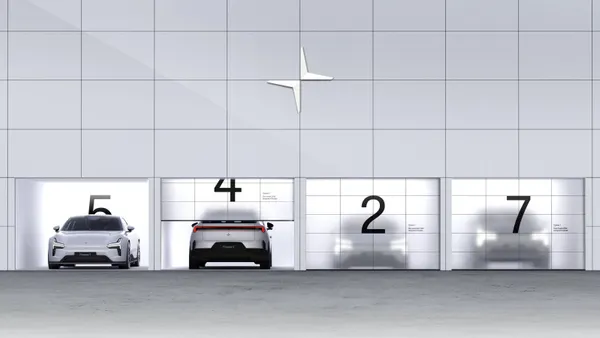Editor's note: This story is part of the WardsAuto digital archive, which may include content that was first published in print, or in different web layouts.
Hyundai slashes 43% from the domestic price of its Tucson fuel-cell electric vehicle and will announce a price cut for the high-tech CUV sold in Europe and other markets sometime next month.
The price of the Tucson FCV in the South Korean automaker’s home market falls from $144,000 to $77,000. Previous government subsidies cut $58,000 from the purchase price, to $86,000.
With the subsidies figured in, the new lowered price to consumers should be about $54,000, analysts estimate.
They expect the overseas price drop for the Tucson ix35 FCV likely will be announced at next month’s Geneva auto show.
In the U.S. and Canada the Tucson is offered only on lease and not for sale. In the U.S. the vehicle is offered for a nationally advertised $499 a month, following a $2,999 down payment. Lease terms include no-cost maintenance and free fuel, but the vehicle’s acceptance has been limited because the U.S. has only a handful of public refueling stations, almost all in Southern California.
The announcement comes after South Korea President Park Geun-hye designates the southwestern city of Gwangju as the nation’s automotive startup and FCV center, with substantial backing from Hyundai Motor Group.
Park visited Gwangju with Hyundai Chairman Chung Mong-koo last week to publicly launch the new startup center. Hyundai simultaneously released its support plan that includes making 1,000 existing Hyundai and Kia patents available to automotive startups and providing technical and management assistance to the newly launched automotive development unit, which is housed on two separate campuses.
The Korean government also is supporting startup ventures with legal and accounting consultation services.
Hyundai and other investors will provide $165 million in funding, half to support auto-industry startups, about $15 million for HFCV infrastructure-development programs and the remainder for small and medium-size business startups not specifically linked to the auto industry.
While the funds earmarked directly for HFCV innovation seem small, Hyundai says in a statement the automotive-development center will focus on providing infrastructure and developing an ecosystem for what the Group and Park call a hydrogen economy.
Metropolitan Gwangju, noted mostly for its agriculture, beautiful scenery and rich culture that is traceable for more than 2,000 years, has been badly in need of manufacturing strength to provide employment.
The city is home to three universities, including the internationally acclaimed Gwangju Institute of Science and Technology, which teaches all science and technical classes, including doctoral-level programs, in the English language.
It also is Korea’s center for photonics development, with highly advanced electronic light-based control systems that are applicable in the automotive industry.
Gwangju last year purchased five of Hyundai’s Tucson fuel-cell CUVs and plans to buy another 10 units this year.
The vehicle’s zero-emissions electric powerplant this year became the first propulsion system of its kind to be honored as one of Ward’s 10 Best Engines. But Hyundai has sold only 28 Tucson FCVs in Korea since the vehicle went into serial production in 2013.
Hyundai tells WardsAuto that since serial production of the Tucson FCV at the Ulsan plant launched in 2013, a total of 208 vehicles have been manufactured. Of these, 28 units were sold to government agencies and to affiliated companies within Hyundai Motor Group.
The remaining 180 units have been exported to markets in Europe, where it is designated the ix35, and North America, with 100 units shipping to the U.S. and Canada.
Hyundai began offering the Tucson FCV for lease in the U.S. in 2014 and now is doing so in Canada.









